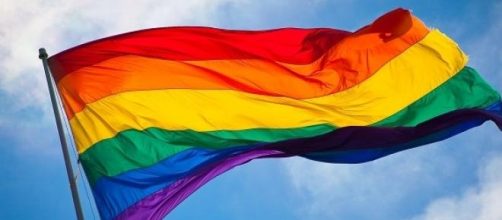"Michael Collins. He helped rid Ireland of British Colonial rule. Not release a few singles." Michael Collins was a revolutionary leader in the IRA during the Irish war of Independence and later a key leader for the Irish Free State during the Irish Civil War. BBC History website describes him as "A soldier and politician who was prominent in the struggle for Irish independence in the early 20th century. He agreed to the partition of Ireland and the creation of the Irish Free State, becoming leader of its provisional government."
Ben disagreed and thinks that gay idols do have a place, "I think because they have followings that it shows that following they are still the same person whether straight or gay they are still the same person and will still be the same person."
About his own idols, Ben said, "I don't think I've ever had an idol as such - I suppose anyone who can be themselves those are the people I idolise."
The question is do people have collective idols or is it more the fact that idols are personally chosen by people and because so many have chosen the same person, that person then becomes the group idol.
For example, Lady Gaga has become a gay idol because so many people in the gay community have taken her as a personal idol because she makes statements and acts in solidarity with them through her actions and her music. And through her rise in popularity among the community, she has become a group idol.
However there are those who believe celebrity coming out culture is flawed. Blogger and Queer activist Alex Gabriel, who writes his own blog, Godlessness in Theory found the support for Tom Daley interesting. In regards to a tweet, Tom posted on the 4th December, "Thanks for your support :) Still Tom. Still diving. Going for gold in 2016. What I am or who I date shouldn't matter. #Road2Rio" Alex suggested Tom received the support because he represented Britain, "It's all right for him to be queer because he represents a benign nationalism."
And speaking about the culture as a whole, Alex believes that the current obsession with Celebrities and their individual stories are used to inspire others is a distraction from the main structural issues like how LGBTQ people are affected economically.
He said, "Love of the celebrity culture and love of the individual story and all those coming out videos on YouTube means we don't want to talk about things that are structural. Don't want to talk about things the way that particular economics victimises us (LGBTQ)… It's all very personalised and I'm not always sure that's a good thing."
However when a celebrity comes out, regardless of the support they get, wider issues concerning homophobia towards the LGBTQ community are discussed.
When Tom Daley came out, the online newspaper, Huffington Post collected twenty homophobic tweets that were posted on twitter in response to Tom's video. Alex Gabriel pointed out the support Tom received because he represented Britain at the Olympics, but there are those whose homophobia cannot see Tom deserving the privilege of representing the country.
Huffington Post reported this tweet, "Tom Daley is gay I am now ashamed of my country ew we can't have a bloody fxx representing us - (@alItomyself) December 2, 2013". The negative response may have been a minority compared to the support Tom Daley received, but the homophobia is still there.
Across the Atlantic in America, the same happened when College Football star, Michael Sam came out in February; The Huffington Post again collected the homophobic responses to Sam's coming out. "Michael Sam first openly gay athlete in the NFL??? that's freaking disgusting!!!!!! should be kicked out if the NFL and the USA - Grey (@greyclark24) February 10, 2014" Despite Michael Sam not being drafted into the NFL until May 2014, this tweets represents the homophobia still alive in the USA today.
In both countries, there is evidence of large support for gay celebrities coming out is the majority, but there are strong voices that continue represent the homophobic aspect of society.

